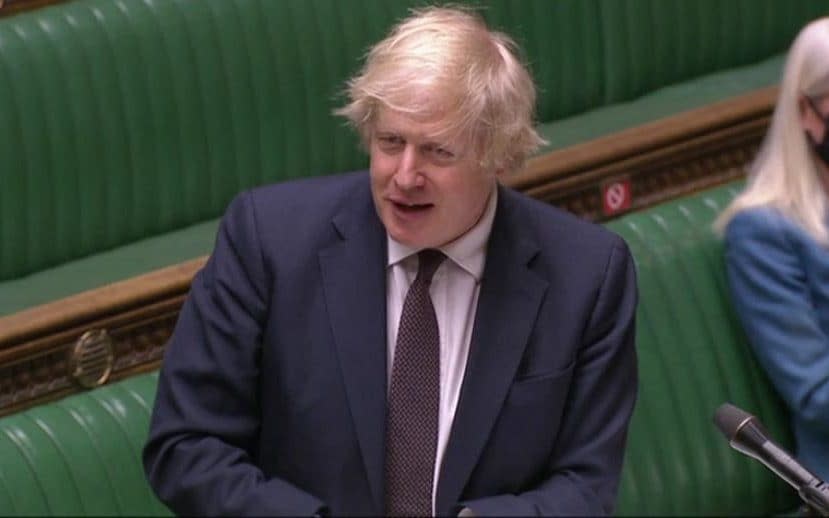The BBC suffers 'degree of instinctive metropolitan bias', Boris Johnson claims

- Oops!Something went wrong.Please try again later.
- Oops!Something went wrong.Please try again later.
The BBC has a "degree of instinctive metropolitan bias” and must shift further to reflect the country, Boris Johnson has claimed in the wake of the flag row.
The Prime Minister on Tuesday hit out at the corporation’s news programming, telling Conservative MPs that it needed to listen to “what their listeners and viewers want.”
Speaking at the 1922 Committee of backbench MPs, he cited Brexit as an example of where the BBC had allegedly failed to capture the national mood.
Asked about perceptions of the broadcaster, Mr Johnson added: “There are moments when they approach fairness. I think we need to recognise as a whole there is a degree of instinctive metropolitan bias in the BBC newsroom.
“It's pretty clear from the whole Brexit experience the BBC was pretty detached from what its viewers and listeners and I hope they move more into line.”
It comes a day after Tim Davie insisted that staff were “very proud of being British” following a backlash over breakfast presenters mocking a Cabinet minister for displaying the Union flag.
Charlie Stayt and Naga Munchetty, the BBC Breakfast presenters, came under fire last week after mocking Robert Jenrick for having a large Union flag in his office.
Their comments provoked a rebuke at the time from Oliver Dowden, the Culture Secretary, who told The Telegraph that what had “started as light-hearted banter became sneering, which is not the BBC at its best.”
Questioned by a Commons committee following the controversy, the director-general said licence fee payers should look to the Broadcasting House building in central London, where a Union flag is always flying.
While Mr Davie has sought to drive through major reforms at the BBC, including announcing plans to move scores of staffing roles out of London, the incident last week has reignited the debate over whether the corporation is out of touch with the public.

